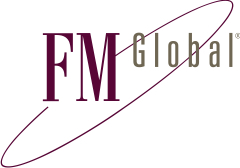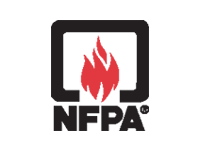Neglecting idle facilities amid COVID-19 will cost companies dearly, warns commercial property insurer FM Global
JOHNSTON, RI (April 7, 2020) —As distracted corporate executives close offices, plants and warehouses to reduce COVID-19 spread, other worrisome risks are emerging at these now-idle facilities, warns FM Global, one of the world’s largest commercial property insurers, whose clients include one of every three Fortune 1000 companies.
In addition to fires, vandalism and theft, spring flood season is beginning in the U.S., and hurricane season starts in a mere two months, leaving understaffed facilities potentially vulnerable. Additionally, earthquakes and tornadoes have continued to occur during the pandemic, as the U.S. has seen recently.
“Any of these events could delay a company’s rebound when the pandemic wanes, causing irreparable financial harm such as lost revenue, market share and reputational damage,” says Kevin Ingram, executive vice president, chief financial officer, FM Global. “Countless companies across many industries have paused operations around the world in what has been billed as the biggest factory shutdown since World War II, and more closings are expected.”
FM Global believes losses at idle properties are preventable and recommends companies ensure the following needs are addressed, while prioritizing employee health and safety, to help protect their facilities as the crisis unfolds:
Essential personnel – Contact authorities and explain that security and maintenance personnel on your site are “essential” in the context of stay-at-home orders.
Active security – Maintain staff to perform regular daily rounds inside and outside idle facilities. Watch for criminal activity, smoke, fire or property damage. Consider webcams and sensors to detect out-of-the-ordinary motion, heat or water flow.
Fire protection – It’s important to keep fire protection in place. Have maintenance staff check weekly to ensure sprinkler valves are locked open. Remove debris and ignitable liquids, and closely monitor any welding or other “hot work” taking place on the property. Alert the local fire department of the building’s change in use.
Flood protection – Water damage, among the biggest threats to commercial and industrial property, is a growing risk as sea levels and population density rise. Elevate equipment and equip your property with temporary or permanent flood barriers.
Maintenance – This is an ideal time to perform overdue maintenance, whether it’s repairing expensive machinery or fixing a small roof leak that, if untreated, could delay your reopening and return to profitability.
“It’s human nature to focus on the most sensational risk, in this case a terrible one that’s commanding attention around the globe,” adds Ingram. “Yet it’s important to remember that other serious risks haven’t gone away and continue to affect organizations’ resilience. Firms that stay vigilant are more likely to be the winners that get back to business at the earliest opportunity.”
About FM Global
Established nearly 200 years ago, FM Global is a mutual insurance company whose capital, scientific research capability and engineering expertise are solely dedicated to property risk management and the resilience of its client-owners. These owners, who share the belief that the majority of property loss is preventable, represent many of the world’s largest organizations, including one of every three Fortune 1000 companies. They work with FM Global to better understand the hazards that can impact their business continuity in order to make cost-effective risk management decisions, combining property loss prevention with insurance protection.
###





